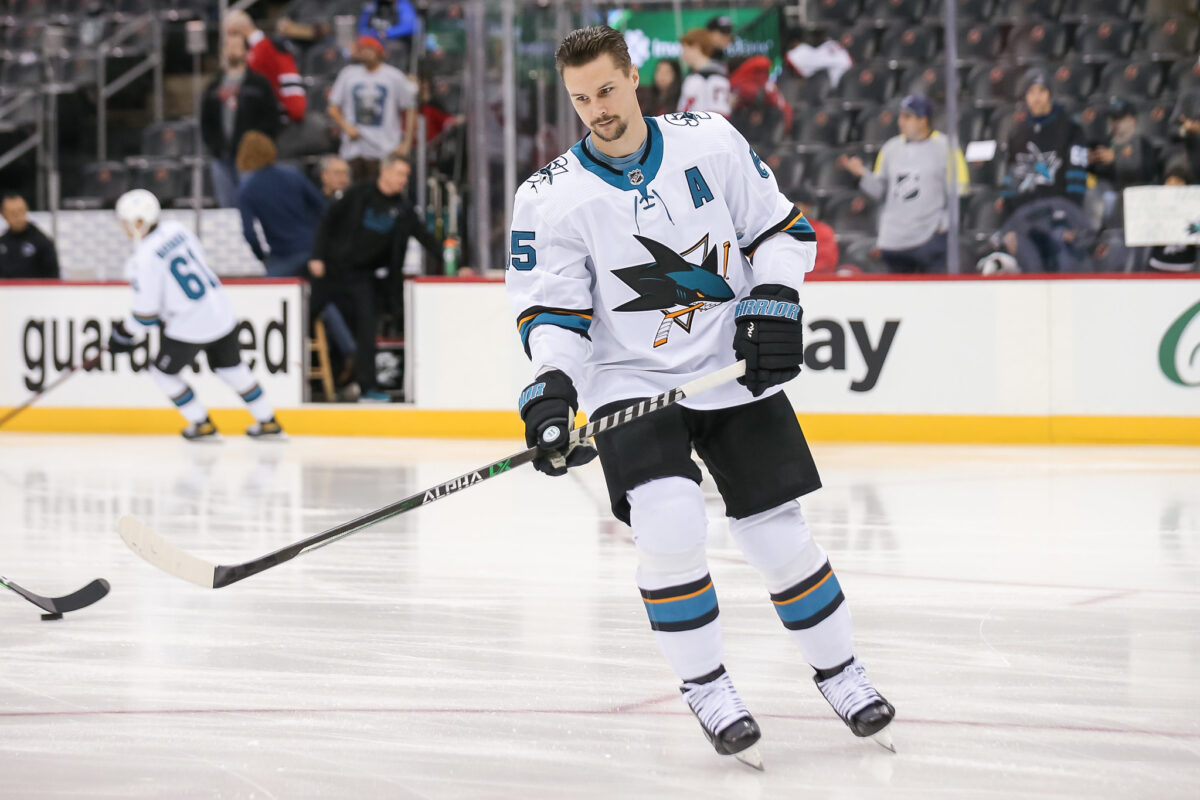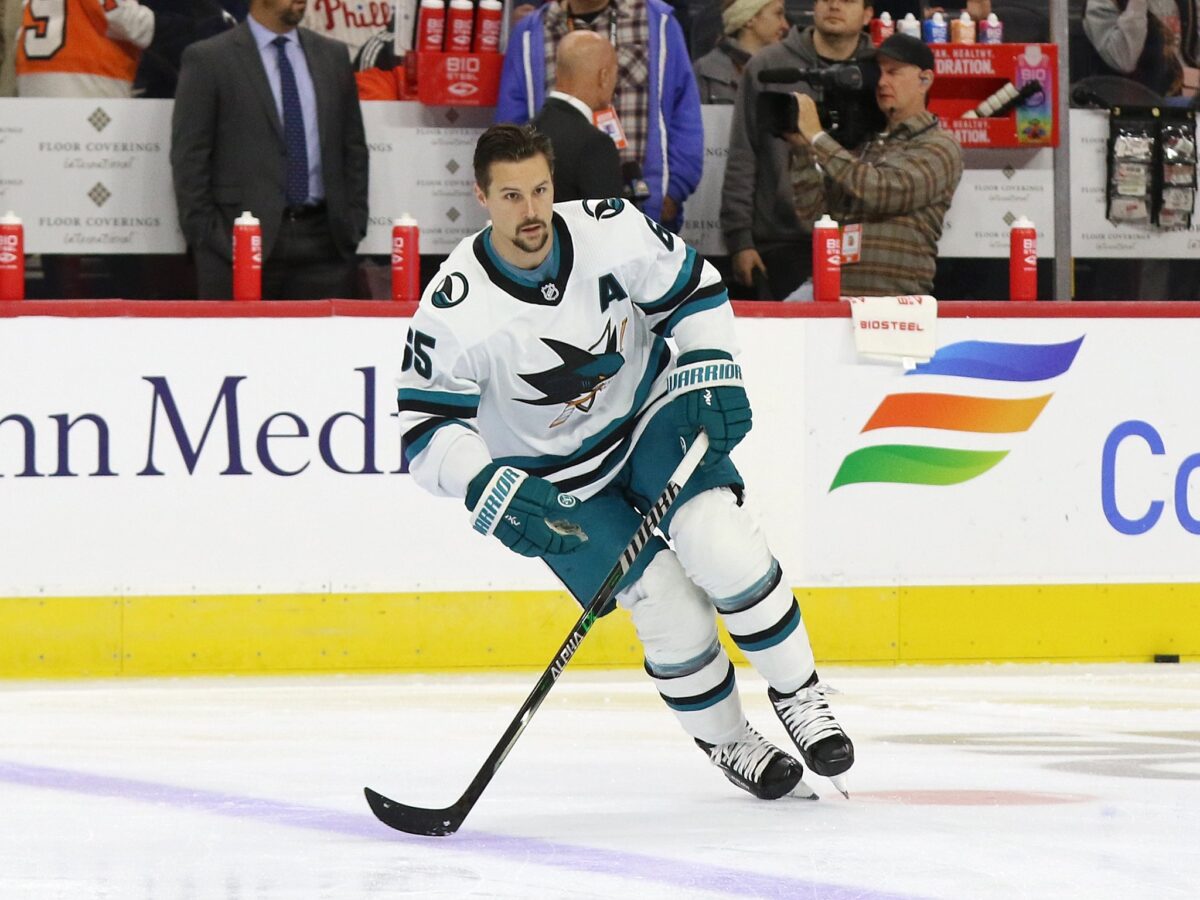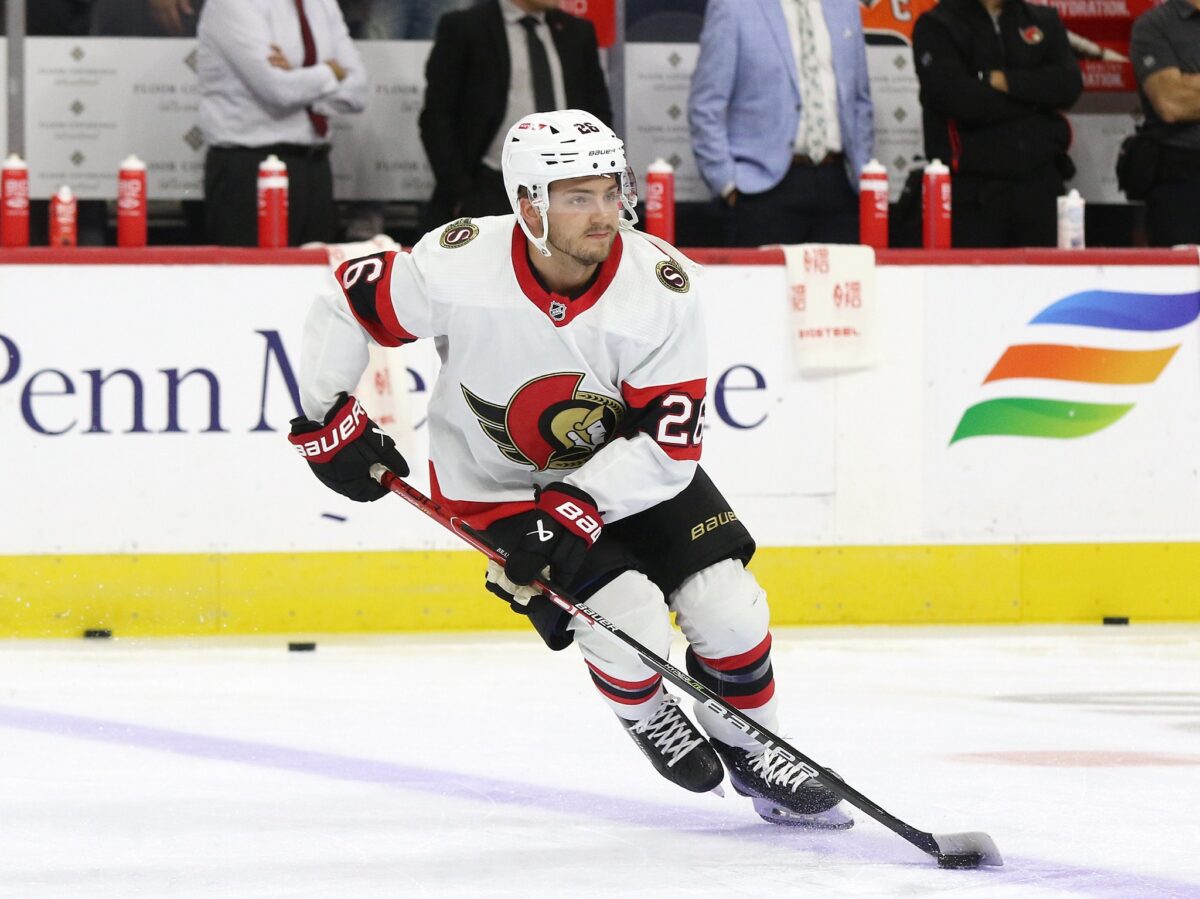I’ll admit that it’s entirely a pipe dream that has been crafted through nostalgia. But a path does exist for the Ottawa Senators to reunite with Erik Karlsson. This week, the San Jose Sharks announced that Karlsson (along with most of the team) was available for trade. So what would it take to make this work and does he really bring what the Senators need right now?
Working Around the Mammoth Contract
There’s no denying that he was absolutely electric. Karlsson in his prime was the prototype from which Cale Makar was made. After missing time in two seasons, the Senators made the blockbuster trade with the Sharks. Once he was in San Jose, Karlsson signed what was, at the time, the biggest contract for a defenseman at eight years, $11.5 million average annual value (AAV). That dollar figure made him the third-highest cap hit in the league behind Auston Matthews and Connor McDavid.
Looking beyond his current season, which has been absolutely resurgent, the contract aged like milk. He’s yet to play a full 82-game slate since signing and hasn’t had more than 45 points in a season. A far cry from his point-per-game season with the Senators in 2015-16. This season has seen him on a tear so far. It’s early, mind you, but he’s already matched his best goal total in the past five years, with 10 goals in 18 games. Any team that’s looking to trade for him will need to acknowledge the risk, and to take that risk on, they’ll need to lower his massive salary cap hit.

The current collective bargaining agreement (CBA) indicates that a team can only retain 50 percent of the salary cap hit in a trade. That would be step one for the Senators – convincing the Sharks to hang onto $5.75 million per year. That’s a tall ask considering he’s signed through the 2026-27 season. But as the Sharks enter an aggressive re-tooling phase, they need to be out from under his contract so they can start using their cap to collect assets. For the Senators, this likely means a roster player, a valued prospect, and likely two draft picks heading back to San Jose.
Finding a Third Party to Help
While the CBA allows a single team to retain 50 percent, teams also have the ability to pass a player through a third team to retain 50 percent of that 50 percent. Karlsson at $11.5 million is a huge risk. Karlsson at $5.75 million is seemingly a good value. Karlsson at $2.875 million? That’s an exceptional bargain. Of course, getting another team to swallow contract value is going to involve moving more assets. There are two teams that could reasonably take on a chunk of the contract.
Related: NHL Rumors: Oilers, Sharks, Senators, Maples Leafs
The Arizona Coyotes and the Anaheim Ducks are not yet in the stage of their rebuilds where they need to add roster players. They both have over $15 million in cap space right now, so stashing 50 percent of $5.75 million won’t be an issue. The Buffalo Sabres have the most space available, but their season has started strong and it looks like they’re closer to competing. Some of this space is through long-term injured reserve though and they’ve got critical signings after next season. So, it’s unlikely they would make a deal here.

Getting either the Ducks or the Coyotes to eat a piece of the contract is going to involve moving some picks at the bare minimum. But the Senators are in a tough spot so far this season, and that will give these teams all the leverage. If they decide to move on Karlsson (or anyone else), any involved teams will be asking a king’s ransom to help out.
The Assets Going Away
We’ve determined there’s a path, but it’s going to cost a lot. As the Senators appear to have zero interest in parting with most of their core, they’ll likely need to give up a package. There’s been no word on an extension for Alex DeBrincat yet, and if those talks are stalled or nonexistent, he potentially could be included. Without a big-name player like him, what would the package look like? The first thing is that the Sharks have a minimal amount of defensemen in their prospect pool. That’s an area they’d likely want to stock up on. For them to give up Karlsson and retain some salary, that means it’s going to cost the Senators a key name. With Jacob Bernard-Docker having earned his spot in the lineup, that leaves prospect Lassi Thomson with the short straw. He would be a solid addition to a weak defensive prospect pool for the Sharks, so he’d certainly be sought after.
Along with Thomson, the Sharks would likely want a roster player. Given the nature of their rebuild, someone easily flipped at the deadline for more assets would probably be the key. Tyler Motte could be a likely target, as he can hop into their bottom six until the trade deadline and he’s a pending free agent without any no-movement clauses. Going with a lower-tier player will increase the number of picks they need to include, though. As painful as it would be for the Senators, they’ll also need to give up at least one first-round pick to make this happen. This upcoming draft class is shaping up to be one of the strongest in a while. It would be hard to part with a chance at someone like Connor Bedard or Adam Fantilli, but it would almost certainly be a requirement in this deal.
Looking toward salary retention, both teams involved in a three-way deal will need to have draft capital. When the Toronto Maple Leafs retained salary in the Robin Lehner trade to the Golden Knights, they received a fifth-round pick. That was compensation for holding onto just one year of a $1.1 million cap hit. To convince teams to hold much more value for longer, it’s going to take a more valuable pick. The Senators are without their third-rounders for the next two drafts, which makes this a bit more difficult. As a result, they may need to ship out second-round picks to make this happen.
Should the Senators Really Consider a Deal?
The short answer is no. The long answer is that it would be incredibly cool to see Karlsson wearing No. 65 in a new black Senators jersey. Having said that, it does not really help the team compete. After his tremendous Player’s Tribune piece, Karlsson clearly still has a love for the city, so I don’t think he’d be opposed to donning the centurion again. But his on-ice performance isn’t there anymore. Despite the hot start to the season, it’s almost impossible that he doesn’t regress further. Perhaps the value in him is for what he can do beyond producing points. One could argue that he is the sole player who can shape their current defensive group into the best version of themselves.

For someone like Erik Brännström, Karlsson represents what his game could be. Under that level of tutelage, Brännström could finally reach his potential. For someone like Thomas Chabot or Jake Sanderson, he could help them find that next bit of offensive edge. But he’s a risk. A big one, at that. For all the positives of his on-ice performance and his off-ice assistance, he’s still likely to be a liability. Of course, I’m nostalgic for his 18 points in 19 playoff games in 2017, but that’s not who Karlsson is anymore.
From a fan perspective, I love the idea. It’s a great storyline for the Senators and their fans. However, from a hockey perspective, it just doesn’t work. The season has gotten off to a rocky start and moving a mountain of assets for a player past their prime isn’t going to fix that. Yes, Karlsson is performing well so far this year, but even if he returns to previous highs, it’s not going to be sustainable. There’s definitely a way to make this deal work, but it’s not in the Senators’ best interest to pursue it.